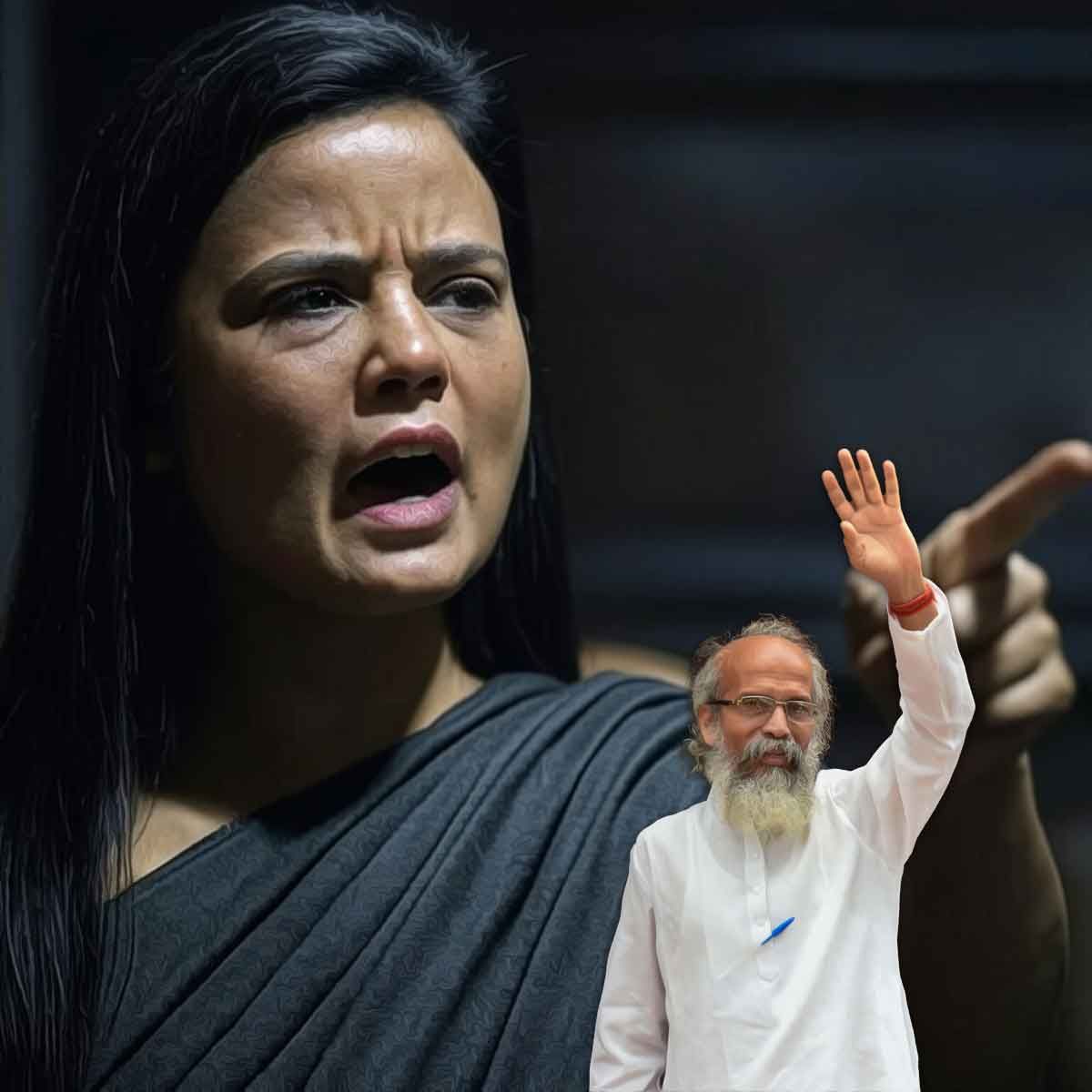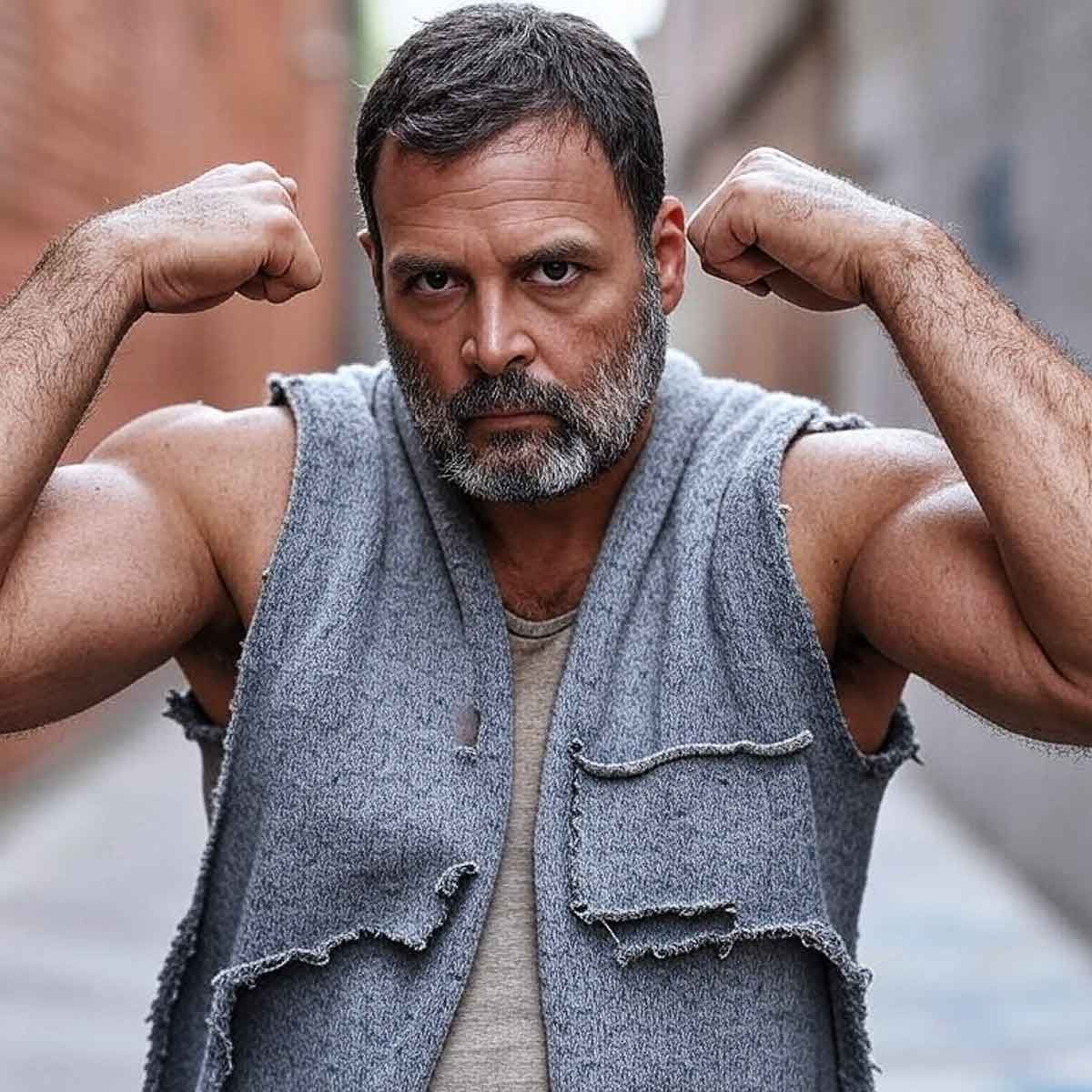More Coverage
Twitter Coverage
JOIN SATYAAGRAH SOCIAL MEDIA
‘Realisation is same as jail’: Delhi High Court invoked Fyodor Dostoyevsky’s book 'Crime and Punishment' to reduce life sentences to 10 years for five Jaish-e-Mohammed terrorists—Bilal, Sajjad Khan, Muzaffar Bhat, Mehraj-ud-Din, and Ishfaq Bhatt

On an unusual Monday, the Delhi High Court found itself leafing through the pages of Fyodor Dostoyevsky's "Crime and Punishment" rather than legal textbooks. In a decision that could be mistaken for a literary critique session, the court dramatically reduced the life sentences of five members of the terror organization Jaish-e-Mohammed (JeM) to just ten years in prison. This occurred under the watchful eyes of Justices Suresh Kumar Kait and Manoj Jain, who preside over the matters of national security as if they were delicate matters of fiction.
|
The decision was based on a deep dive into Dostoyevsky’s exploration of guilt and psychological torment, which the bench apparently found equivalent to decades behind bars. The court took it upon themselves to equate existential dread with actual imprisonment, deciding that ten years would suffice for Bilal Ahmad Mir, Sajjad Ahmad Khan, Muzaffar Ahmad Bhat, Mehraj-ud-Din Chopan, and Ishfaq Ahmad Bhatt — all previously condemned to life sentences.
The rationale? A philosophical musing that might have made Dostoyevsky himself raise an eyebrow: that mental realization of one's crimes is as confining as the four walls of a jail cell. It appears that for these judges, the courtroom morphed into a debate club where legal precedents were less persuasive than classic Russian literature.
In a continued exploration of legal philosophy mingled with classic literature, the Delhi High Court further adjusted the sentences for five convicted members of Jaish-e-Mohammed. This adjustment involved a shift from life imprisonment to ten years of rigorous imprisonment for violating Section 23 of the UAPA. Citing Russian novelist Fyodor Dostoyevsky, the court remarked, “The man who has a conscience suffers whilst acknowledging his sin.” They also referenced a specific passage from "Crime and Punishment": “if he has a conscience he will suffer for his mistake; that will be punishment—as well as the prison,” reflecting a profound consideration of moral and psychological torment as genuine forms of punishment.
|
In November 2022, after the five terrorists pleaded guilty, the trial court had initially handed down numerous convictions under both the IPC and UAPA. It appears that their admissions of guilt did little to simplify their legal predicaments but rather inspired a philosophical inquiry by the appellate court.
Moreover, the National Investigation Agency (NIA) had presented a grim portrayal of these individuals as "highly radicalized Over Ground Workers of Jaish-e-Mohammed who had committed multiple terrorist activities in India." Despite these severe allegations, the High Court’s decision seemed less swayed by their actions' threat level and more by an introspective examination of sin and redemption, as inspired by literary discourse.
The Delhi High Court, in its recent decision concerning five members of Jaish-e-Mohammed, emphasized an intriguing blend of caution and leniency. While acknowledging the severe and worrisome nature of the allegations against these individuals, the bench highlighted a crucial detail in their convictions: “They have been held guilty, primarily, for conspiring, and not for committing any terror act as such. Indubitably, while deciding the quantum, the court is required to strike a balance,” reflecting a deliberate judicial approach towards sentencing.
Further elaborating on its decision, the court pointed out a significant aspect of the convicts' potential for reform. “There is nothing on record which may suggest that they are beyond redemption. India has shown enough of progression in all spheres and our justice delivery system is no exception. It also strongly believes that, more often than not, the eventual consequence of any penal sanction should be to reform any individual, instead of shutting him out by putting him inside for life,” the court asserted. This statement underscores a progressive shift in the judicial mindset from punitive isolation to rehabilitative integration.
This approach, although novel and somewhat optimistic, raises eyebrows in its application to convicted terrorists. The court’s stance suggests a hopeful view of human nature and the power of the justice system to enact change. It reflects a belief in second chances and the potential for individuals, even those involved in severe conspiracies, to be rehabilitated and reintegrated into society.
|
They lamented the lack of structured sentencing norms, stating, “Unfortunately, there are no sentencing guidelines that may assist the court in selecting the most appropriate sentence, minimum or maximum or one falling between the two. Therefore, at times, there is no uniformity. This is also because of the reason that the facts of any two cases would never be same and similar,” highlighting the inherent challenges in achieving consistent judicial outcomes.
The justices further articulated their rationale for moderating the previously severe sentences. While they acknowledged that the convicts were not deserving of undue leniency, they also reasoned that a life sentence was excessive under the circumstances. The court considered several factors in its decision: the defendants’ immediate confession upon their apprehension, their lack of significant criminal histories, their apparent willingness to engage in rehabilitation efforts, and not least, their youth.
In a rather bewildering interpretation of justice, the Delhi High Court offered a critique of the trial court’s decision, which had initially imposed a stringent punishment on five Jaish-e-Mohammed terrorists. The High Court noted, “the trial court was persuaded by the gravity of the claims and did not consider the fact that the convicts were remorseful and pleaded guilty at the first available moment.” This perspective from the High Court is both intriguing and unsettling, considering the severity of the charges against the accused.
The justices went on to articulate their rationale, arguing for a softer approach: “Considering the same, coupled with their young age and the fact that they don’t have any other conviction to their credit, the approach of the learned Trial Court should have been rather that of reforming them which it even noted in the impugned judgment, albeit, not translated into reality, and, therefore, it is a fit case where the sentence awarded under Section 121A IPC and Section 23 UAPA needs to be reduced,” stated the court. This justification for reducing the sentences hinges curiously on the convicts' youth and supposed remorse, alongside an absence of prior convictions, suggesting that a clean slate before committing terrorism somehow weighs heavily in judicial scales.
This leniency sparks a sardonic reflection on the judicial process: is the court now valuing remorse and a lack of history over the potential threat these individuals posed to national security? The approach seems to veer dangerously close to a philosophical musing that one might find in a university ethics seminar rather than a robust legal framework designed to protect citizens and uphold national security.
Moreover, the emphasis on reforming rather than punishing these young terrorists opens up a satirical can of worms about what exactly constitutes sufficient remorse to mitigate a sentence. Does an early guilty plea serve as a 'get out of jail early' card? This narrative, while perhaps well-intentioned, risks undermining the gravity of terrorism-related charges and could be seen as a gentle pat on the wrist rather than a firm stand against serious crimes.
Through this ruling, the Delhi High Court not only revises the harsher sentences but also seems to rewrite the playbook on how justice interacts with terrorism, leaving observers to wonder if this softer approach might encourage more than deter future offenses. The court's decision paints a peculiar picture of justice, one where existential guilt and a clean past appear to tip the scales in favor of those who've crossed lines that society agrees should not be crossed.
 Support Us
Support Us
Satyagraha was born from the heart of our land, with an undying aim to unveil the true essence of Bharat. It seeks to illuminate the hidden tales of our valiant freedom fighters and the rich chronicles that haven't yet sung their complete melody in the mainstream.
While platforms like NDTV and 'The Wire' effortlessly garner funds under the banner of safeguarding democracy, we at Satyagraha walk a different path. Our strength and resonance come from you. In this journey to weave a stronger Bharat, every little contribution amplifies our voice. Let's come together, contribute as you can, and champion the true spirit of our nation.
 |  |  |
| ICICI Bank of Satyaagrah | Razorpay Bank of Satyaagrah | PayPal Bank of Satyaagrah - For International Payments |
If all above doesn't work, then try the LINK below:
Please share the article on other platforms
DISCLAIMER: The author is solely responsible for the views expressed in this article. The author carries the responsibility for citing and/or licensing of images utilized within the text. The website also frequently uses non-commercial images for representational purposes only in line with the article. We are not responsible for the authenticity of such images. If some images have a copyright issue, we request the person/entity to contact us at This email address is being protected from spambots. You need JavaScript enabled to view it. and we will take the necessary actions to resolve the issue.
Related Articles
- "Permission marketing is marketing without interruptions": Supreme Court responds to Vice-President; says as per Constitution, Parliament has right to enact law but Court has power to scrutinize it, Govt functionaries comments on collegium not well taken
- "अल्हम्दुलिल्लाह!!! Mob has no religion": The Rajasthan High Court grants bail to 18 Islamists accused in the Hindu Shobha Yatra attack in Chittorgarh, highlighting the challenges of pinpointing culprits amidst the chaos of mob-induced communal violence
- Pastor Father Lawrence has been given a life sentence by a POCSO court in Mumbai for the horrific crime of sodomizing a 13-year-old
- "Mediocre minds usually dismiss anything which reaches beyond their own understanding": Allahabad HC dismisses PIL seeking Judicial Probe into death of 63 children at Gorakhpur Hospital in 2017, UP Govt had terminated services of Dr. Kafeel Ahmad Khan
- "Every sinner has a future": Supreme Court Bench grants bail to Syed Asim Ali, the accused conspirator in the Kamlesh Tiwari murder, which involved a brutal attack that left the Hindu Samaj Party leader fatally stabbed & shot in broad daylight in Lucknow
- "Finally, in conclusion, let me say just this": Remark against Prophet Mohammad - Supreme Court transfers all FIRs against ex-BJP member Naveen Kumar Jindal to Delhi Police, during the hearing, Luthra sought similar relief as granted in Arnab Goswami case
- Plea rejected by Allahabad High Court to open 22 'closed rooms' of Taj Mahal to research the real history, says "matter should be left to historians. Please don't take us to the historical facts which you believe"
- "चलो फिर से": Baba Ramdev claims "crores of people are dying" from toxic modern medicines, comparing their deadly impact to British rule, Islamic invasions, and revolutions by Lenin, Marx, and Mao, despite Supreme Court warnings against fearmongering
- "Insaaf ke parde main ye kya julm hai yaron, dete ho saza aur khata aur hi kuch hai": SC grants Fact-checker Mohammed Zubair interim bail in all Cases, orders his immediate release, says we cannot restrain a journalist from writing, he can tweet
- Chennakeshava temple in Belur kicks off 'Rathotsava festival' with Quran recitation: Earlier temple administration requested Muslims to vacate their shops, however, Govt gives their nod for non-Hindus to set up stalls throughout festival






















